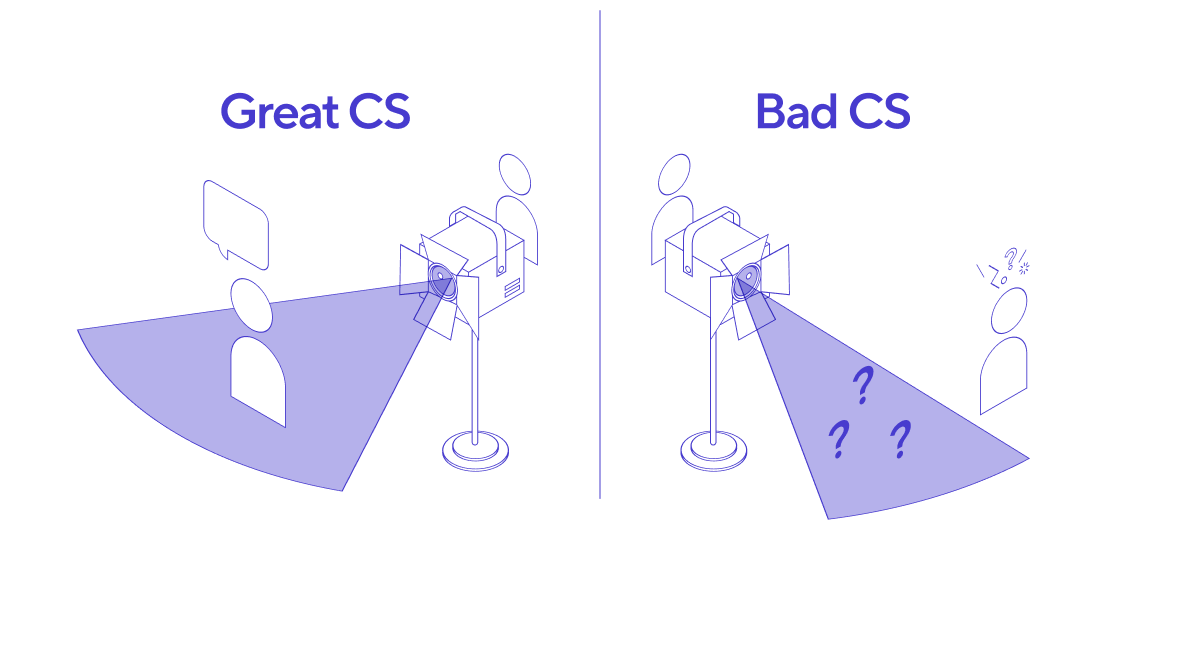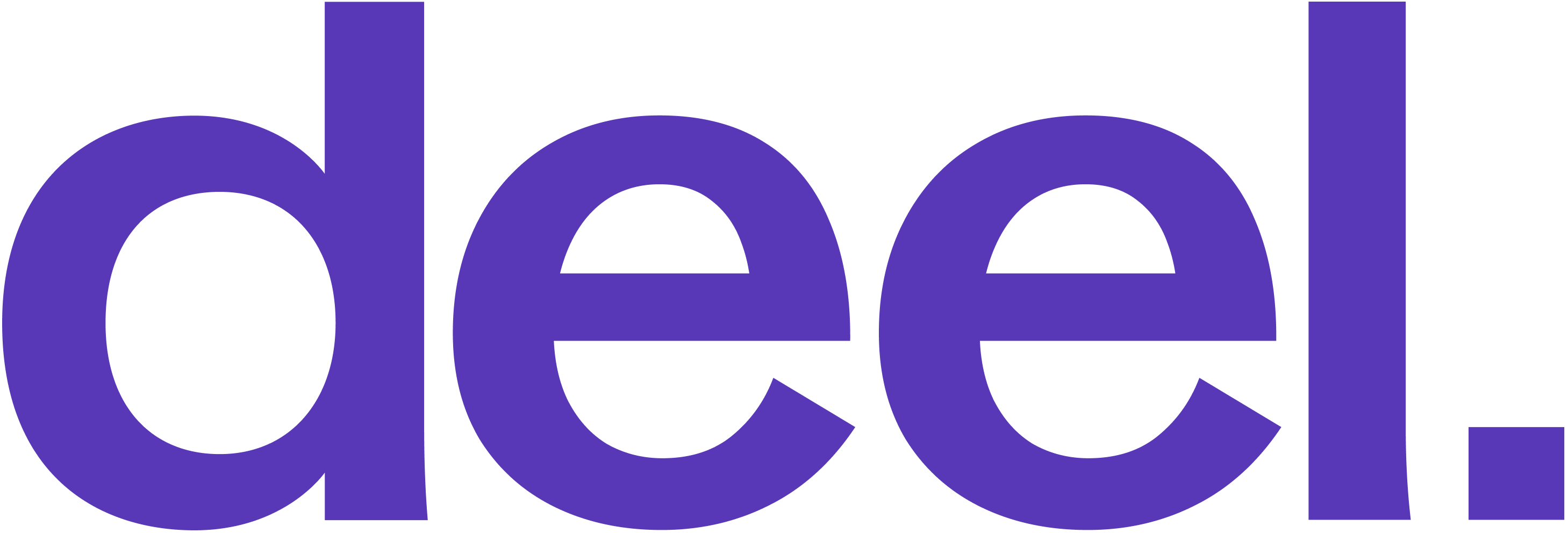Customer Success at Ashby: A Core Differentiator
13 minute read
I drafted this reflection the week before Ashby announced its Series D on 22 July 2025. Fundraises create a natural moment to reflect – and it’s due time for me to capture where our Customer Success organization stands and where we’re headed. I’ll continue to update this post as we grow, but now feels like the right time to articulate the promises we make to customers, the expectations we set with the team, and how the two thread together to shape our next 12–18 months of investment.
My Perspective
I’ve spent over a decade in Customer Success roles at HubSpot, in the People Analytics world, and now at Ashby. I have come to hold strong opinions about what makes for an excellent CSM — some of which depart from the industry norm. Too often, CSMs are cast as part Account Manager, part Relationship Manager. At best, this doesn’t fully solve for the customer. At worst, it’s a thinly veiled upsell strategy.
In my experience, the best CS orgs live at the intersection of 1) market insight, 2) product expertise, and 3) customer context. When these three circles overlap, customers experience what I think of as the spotlight effect: their team’s work shines because someone backstage knows exactly where the beam belongs. This belief drives how we’ve built the team at Ashby:
“Customers should get what they need just in time… We have to meet them not just where they are, but where they’re going.”
Every CSM is hired for curiosity and product acumen. Within a year, they’re true experts who can oscillate effortlessly between tactical improvements and C-Suite conversations.

Market → Product → Customer
While I maintain that the spotlight effect is an imperative agnostic of industry, it’s especially critical for Talent Teams.
Market
Talent Acquisition trends move fast — and often contradict themselves. One quarter: hire 300 engineers yesterday. The next: freeze everything and justify every role. McKinsey calls it the yo‑yo economy of talent. It’s real, painful, and expensive (reactive recruiting can cost 40% more per hire). The reality is that Customer Success is kneecapped from truly helping customers unless we're deeply familiar with the customers’ world. A good CSM should be able to explain to a Series B founder in San Francisco why their compensation ratios look different from a FinTech in Berlin — no deck required. This level of fluency only comes from being a student of the market: reading analyst notes, sure, but – more importantly – taking the time to learn from TA folks directly (and ultimately understand patterns across the talent landscape).
Product
Our job is to help customers adopt Ashby in ways that directly support their business outcomes (thank you Casey for connecting the Hiring Excellence Framework to our customer outcomes framework). To do this requires mastering every corner of Ashby, from advanced scheduling rules to the statistical underpinnings of Quality of Hire dashboards. But fluency alone isn’t enough. We anticipate how features land in real hiring environments. New alerting logic? We model what happens when a Hiring Manager ignores Slack. New benchmark report? We begin to shape the board-level narrative. It’s a muscle we’re continuing to build — because even the best features don’t drive impact on their own. A (slightly brutal) reminder from Gartner: 75% of SaaS features are underutilized at renewal. Does every customer need to use every feature to see value? No – that’d be Ashby-centric and not customer-centric. But it is our job to ensure customers are equipped to get the most out of the functionality that supports their goals.
Customer Context
Finally, none of this matters if we don’t understand the day-to-day reality of any given organization. A Director of Recruiting might care about Quality of Hire, while their team is laser-focused on speed. When priorities seem misaligned (or are), CSMs must lead with curiosity and candor to drive clarity – better to ask one question too many times than one too few. With greater alignment, our Customer Success Team helps customers focus on what matters most.

When these three lenses overlap, the experience feels effortless, like a well-lit stage. As an audience member, you don’t think about the spotlight operator – you simply see the actor in perfect clarity. When one lens is missing, however, the spotlight drifts.
Our precision in CS keeps the focus where it should be.
What We’re Building (and Why It’s Different)
We could’ve followed the standard SaaS playbook: strict ratio targets, QBRs, churn scores. (Forgive me, but yawn). Instead, we kept what worked — and rewrote the rest.
1. Customer Informed Roadmap
When I joined in February 2023, Ashby already had a strong feedback loop between CS, Support, and Product. Today, we track friction points across the lifecycle and hold a P-level company goal to reduce them. Our CS Team takes pride in uncovering the driving force behind customer suggestions, why those are important to the unique goals of a talent organization, and championing customers internally by influencing product decisions. While I could dedicate an entire post to our commitment here, the snapshot below is just one example from our internal product expert Sheanee’s recurring digest email.

Ultimately, customer suggestions are one of the three key inputs we consider when shaping the roadmap, alongside our long-term product vision and consideration of market shifts.
2. Hiring for the “Product‑Market‑Customer” Gene
Most CS orgs hire for archetypes: relationship-first, commercial-first, or product-first. At Ashby, we hire utility players who can traverse elevations on a topic – people who can move from deeply nuanced product questions about the Recruiting Planner to elevated headcount strategy discussions without breaking stride. In interviews, I look for candidates who respond to ambiguity with curiosity: They ask for context, data, and seek to define outcomes. Excellent CSMs feel “itchy” when something isn’t quite right for the customer — and channel that instinct into action. For me, this quality matters materially more than the logos on their resume.
3. Force Multipliers, Not Solo Stars
Knowledge grows when shared. CSMs at Ashby codify their learnings into playbooks, articles, and enablement resources. This creates compounding value. Advanced Scheduling metrics become a Lunch and Learn (thank you, Christian); clever reports become a templated dashboard (Emily, appreciate you); an onboarding best practice becomes an Ashby Academy module (shout-out to Jace). Our team knows that if they hoard knowledge, they’re failing the mission.
4. A Single Definition of Customer Health
Ask a handful of SaaS companies for their health score and you’ll receive a litany of responses. We’re simplifying our assessment to four core leading indicators: achievement of customer outcomes, product usage data, intent signals, and – drumroll please – human input. Each has sub‑metrics, but the point is clarity. A yellow account means the CSM can pinpoint which of the inputs needs attention and why (big thank you to Britney for all your work here – it has certainly been a labor of love).
5. Investment in Specialized Roles
In 2025, we tripled the size of our Support Engineering Team and doubled our Contract Management function. Next up: expanding our team of Recruiting Operations Consultants. Each of these specialized roles strengthens our ability to lead with a proactive, customer-centric approach — and reinforces that Customer Success is a team effort.
A Promise to the Team
Yes, I’m obsessed with customer outcomes — and equally committed to building an environment where every team member across Customer Success, Support, Professional Services, RecOps, Implementation, and Contract Management discovers their strengths, stretches well beyond their comfort zone, and accelerates their career. In practice, that means:
- Force Multiplier Culture. You non-negotiably make your teammates better — and they do the same. Expect steep growth in both hard and soft skills (sometimes uncomfortably steep).
- Product Mastery. You will arrive with strong product acumen; within your first year, you’ll become an Ashby expert capable of designing and teaching complex workflows.
- Ownership. In alignment with our Operating Principle of Prioritize Ownership – own your book like a founder, share your learnings like a teacher, and continue to raise the bar with peers and customers alike.
- Empowerment. If you know the right move, make it. We trust you.
- Informed Product Decisions. You’ll influence what we ship next via regular engagement with our product roadmap software, our Friday Product Stand Ups, weekly round-ups, and more.
- Career Growth. Whether you want to double down in CS or explore other functions, we’ll support you in mapping your path to identify opportunities at the intersection of your strengths, joy, and Ashby’s needs. We’ve seen colleagues migrate to Marketing (congrats, Elizabel), Product (hello, Ravan!) and promoted within CS (most recently, shout-out to Morgan as the newest Manager of our Implementation Team)!
- Data-Driven. We make every reasonable effort to equip you with the information you need to do exceptional work
- Aligned Go-To-Market. In no uncertain terms, our Sales Team is excellent at accurately depicting the product and the post-sale experience; this means we get to hit the ground running with customers at kick-off – no surprises.
This is how we multiply our impact — and that of our customers.
A Promise to Customers
Over the next year, our investments align with our strategic approach:
- 24/7 Global Support (365 days a year) across AMER, EMEA, and APAC
- A Support Engineering Layer to resolve complex issues faster
- A New Knowledge Base and Ticketing System optimized for your experience
- AI‑Powered In-App HelpHub — already 50,000 questions answered with more than 90% rated excellent (yes, we review every single response)
- Enterprise‑Grade Professional Services packages that remove lift and accelerate time-to-value
- Community Programming: user webinars, Ashby Academy, Ashby Customer Expert programming, and more
Our north star is simple: understand your opportunities, elevate your workflows, and ensure your team looks brilliant under the spotlight (spoiler: you make it easy).
Closing Thoughts
Customer Success at Ashby is not a cost center. It’s not insurance for renewal. It’s a strategic growth driver.
When we anticipate market shifts, translate product complexity, and explore the unique context of every customer, we create a flywheel: customers realize more value, they share with others, the market elevates expectations, the bar raises further. That virtuous cycle earns Ashby our seat at the table — and helps how our customers earn theirs.
If you’re already with us, I hope this reflection deepens your confidence in our partnership. If you’re just getting to know Ashby, know this: the product you buy comes with a team obsessed with your success. We’ll keep the spotlight right where it belongs: on you.
And if you’re a CS professional looking for your next challenge? Let us know.



